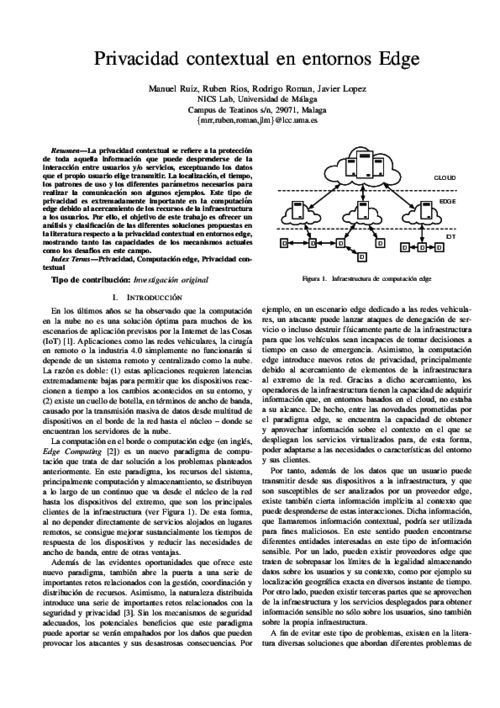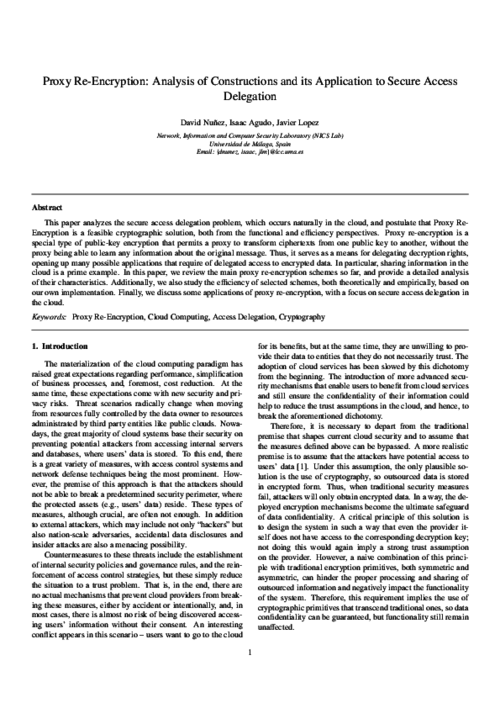The Computer Journal, J. González Eds., Oxford Academic, 2012.
VII Jornadas Nacionales de Investigación en Ciberseguridad (JNIC 2022), pp. 122-129, 06/2022.
Abstract
La privacidad contextual se refiere a la protección de toda aquella información que puede desprenderse de la interacción entre usuarios y/o servicios, exceptuando los datos que el propio usuario elige transmitir. La localización, el tiempo, los patrones de uso y los diferentes parámetros necesarios para realizar la comunicación son algunos ejemplos. Este tipo de privacidad es extremadamente importante en la computación edge debido al acercamiento de los recursos de la infraestructura a los usuarios. Por ello, el objetivo de este trabajo es ofrecer un análisis y clasificación de las diferentes soluciones propuestas en la literatura respecto a la privacidad contextual en entornos edge, mostrando tanto las capacidades de los mecanismos actuales como los desafíos en este campo.

Accountability and Security in the Cloud, M. Felici, and C. Fernandez-Gago Eds., Lecture Notes in Computer Science 8937, Springer International Publishing, pp. 114-125, 2015. DOI
Abstract
In this paper we tackle the problem of privacy and confidentiality in Identity Management as a Service (IDaaS). The adoption of cloud computing technologies by organizations has fostered the externalization of the identity management processes, shaping the concept of Identity Management as a Service. However, as it has happened to other cloud-based services, the cloud poses serious risks to the users, since they lose the control over their data. As part of this work, we analyze these concerns and present a model for privacy-preserving IDaaS, called BlindIdM, which is designed to provide data privacy protection through the use of cryptographic safeguards.
Journal of Network and Computer Applications, vol. 87, Elsevier, pp. 193-209, 06/2017. DOI
Abstract
This paper analyzes the secure access delegation problem, which occurs naturally in the cloud, and postulate that Proxy Re-Encryption is a feasible cryptographic solution, both from the functional and efficiency perspectives. Proxy re-encryption is a special type of public-key encryption that permits a proxy to transform ciphertexts from one public key to another, without the proxy being able to learn any information about the original message. Thus, it serves as a means for delegating decryption rights, opening up many possible applications that require of delegated access to encrypted data. In particular, sharing information in the cloud is a prime example. In this paper, we review the main proxy re-encryption schemes so far, and provide a detailed analysis of their characteristics. Additionally, we also study the efficiency of selected schemes, both theoretically and empirically, based on our own implementation. Finally, we discuss some applications of proxy re-encryption, with a focus on secure access delegation in the cloud.

 ]
]